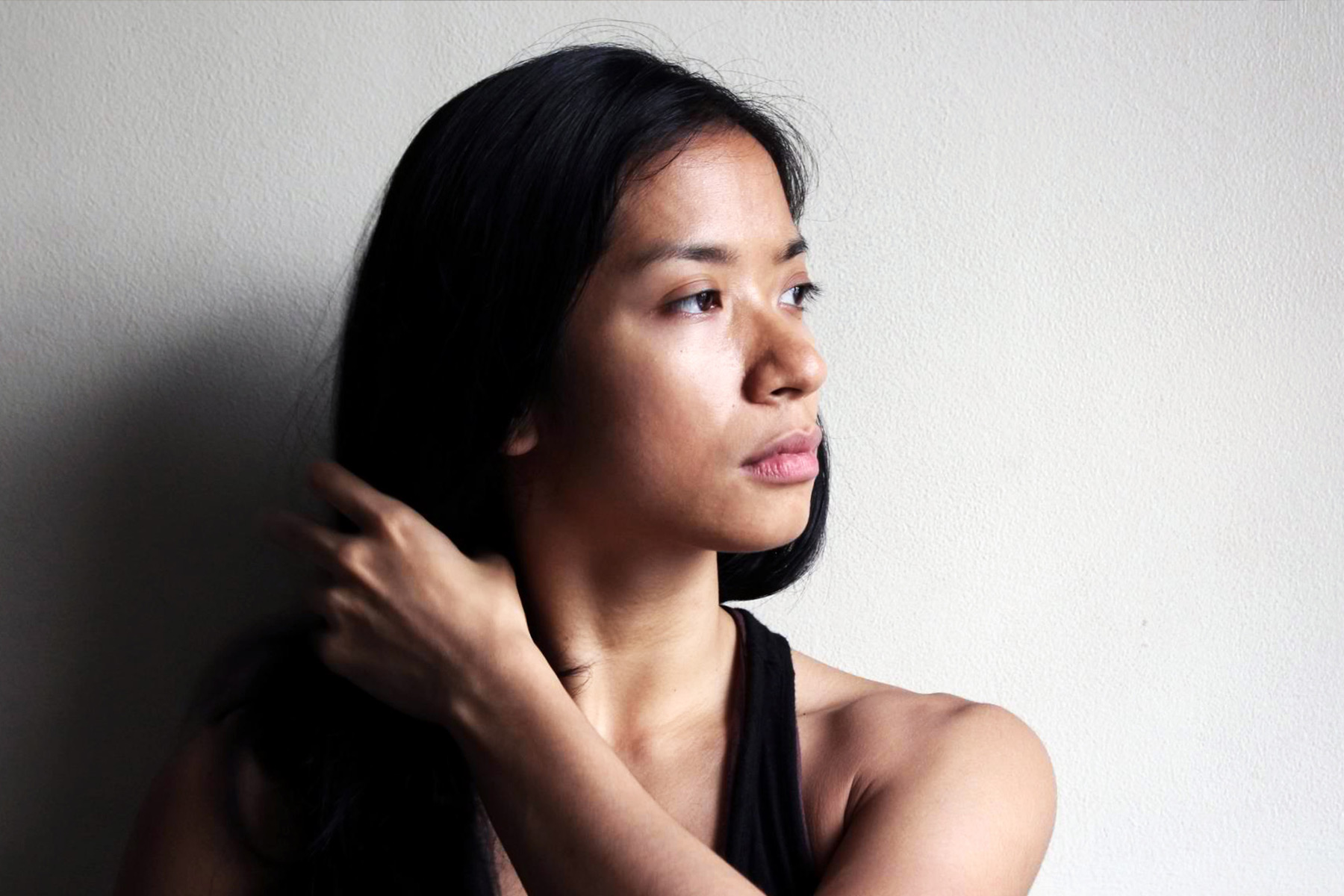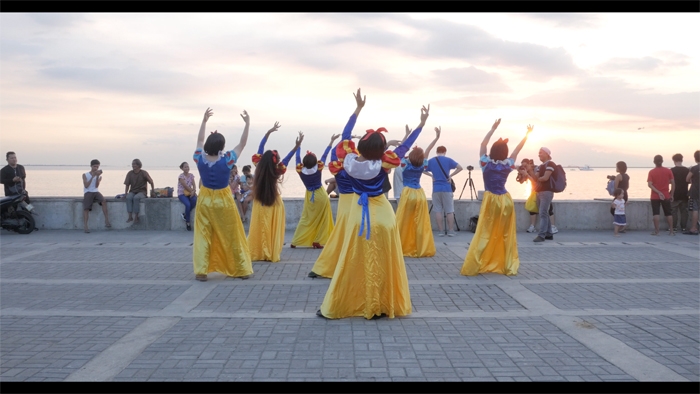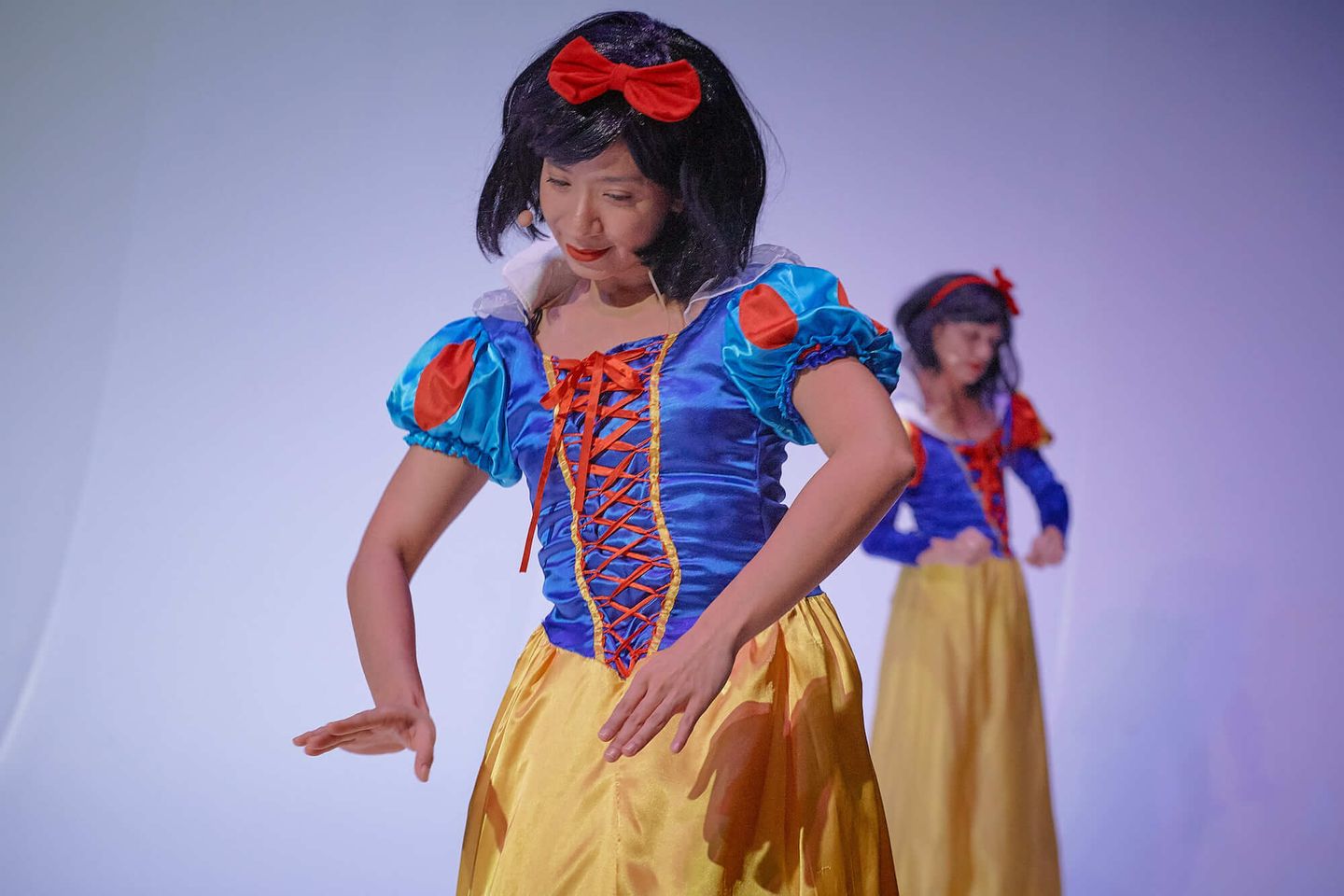
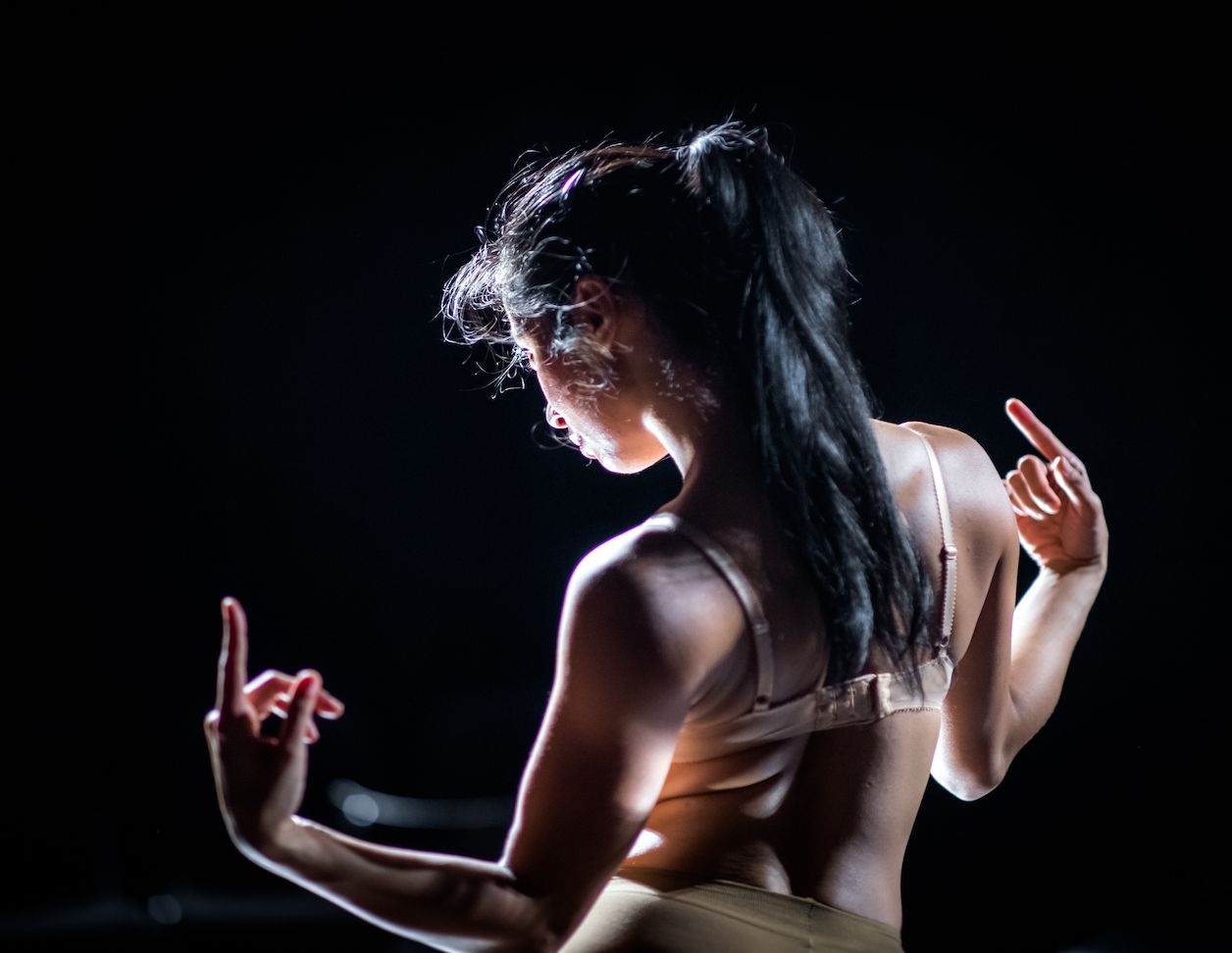
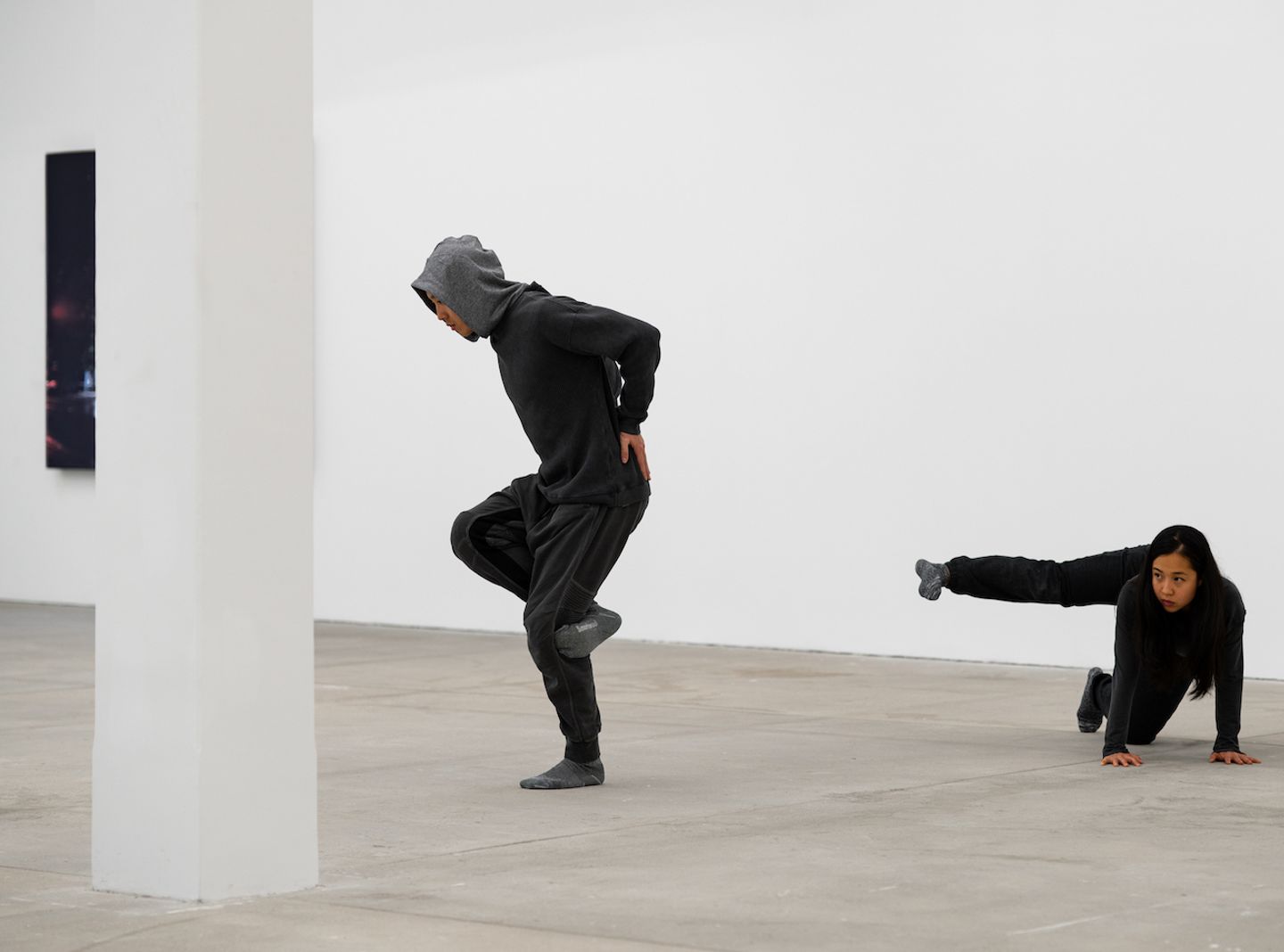
Eisa Jocson
b. 1986, Manila, Philippines
Lives and works in Manila, Philippines
Eisa Jocson is a renowned choreographer, dancer, and visual artist who has long been interested in the politics of the Philippine body, particularly with regards to questions of representation and visibility.
The winner of the Hugo Boss Asia Art Award in 2019, Jocson’s artistic practice has looked into how the body moves physically and across borders, and the conditions under which it moves; conditions that are transected by social, economic, class, and other conventions, often through the prism of the service and entertainment industry.
For the ‘Happyland’ series (2017–ongoing), a research project exploring migrant labour and happiness production, Jocson delved into techniques of dancing from pole dancing to ‘macho dancing’, as well as into the affectations of the character of a Disney princess. In the process, she has become critically fascinated by the highly skilled Filipino performers employed by theme parks to play the role of animal characters, which led to a study on the conditions and behaviours of displaced and captured animals in zoos.
‘Zoo’ is the third iteration of the ‘Happyland’ series, and furthers Jocson’s research. Commissioned by Tai Kwun Contemporary and presented in the recent exhibition ‘My Body Holds Its Shape’ (25 May–27 September 2020), ‘Zoo’ initially set out to explore the relations between humans and animals, systems of labour and confinement, as well as the politics of the gaze and spectacle, linking the bodily practices of humans playing animal characters in theme parks with the conditions of displacement and capture faced by animals in zoos.
Jocson and her Filipino collaborators were meant to take part in a durational performance throughout the run of the exhibition at Tai Kwun. However, with the upheaval caused by the Covid-19 pandemic and its attendant travel restrictions and closures, this became impossible. The work was transformed as a result, displaced as an online performance transmitted into the exhibition by livestream from Manila, along with live performances by Hong Kong-based performers staged in the gallery. The issues of representation, spectacle, and confinement suddenly took on an even greater level of mediatisation, touching on themes of digital participation and surveillance.


